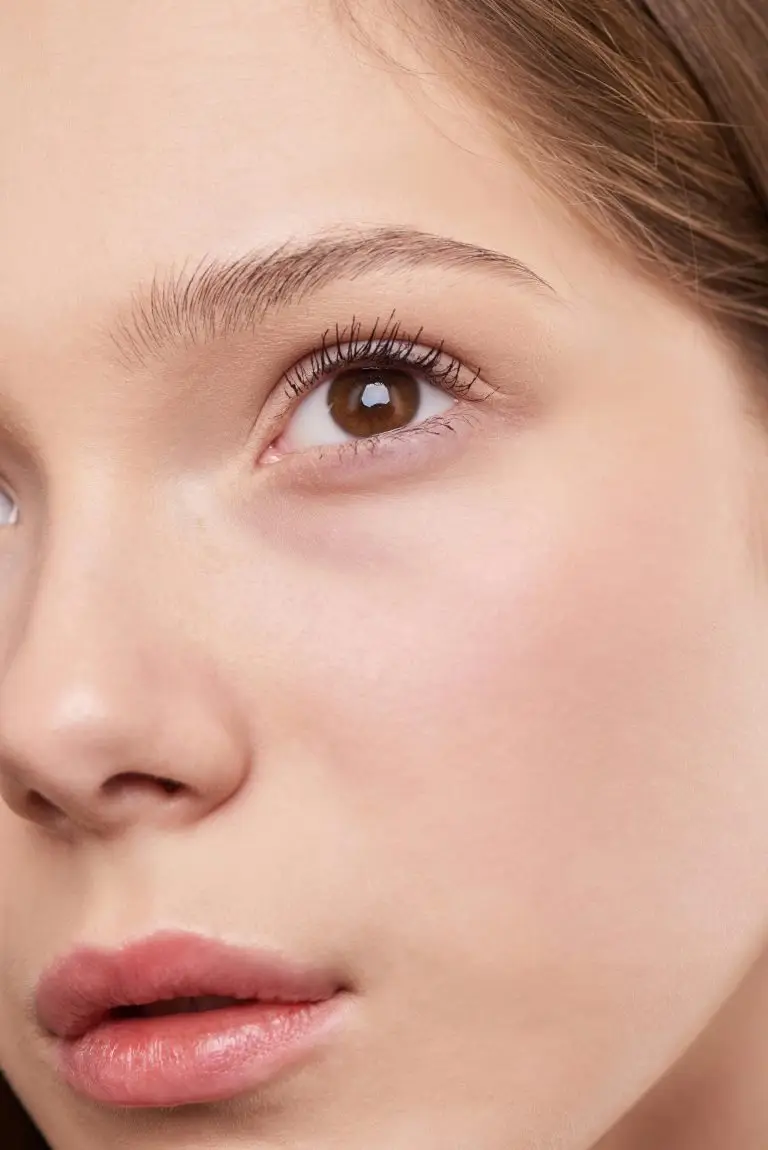Facials Are Getting a New Look
While the Edgar Cayce readings never actually
recommend makeup by itself, they do offer a
refreshing approach to beautiful skin, hair, nails,
feet, and hands. Healthy skin is really the result of a
chain reaction, arising not only from the cleanliness
and health of the body itself, but also from the
outpourings of the mind-with both aspects working
harmoniously in sync, a balancing of internal as
well as external beauty. Ideally the foundation for
cosmetics would be a clean, healthy skin, rather than
their being used simply as a camouflage for flawed
skin. Proper nutrition, exercise in the fresh air, and a
positive emotional attitude are all requirements for
healthy skin in addition to a good outer cleansing.
Facials are one way of achieving a proper external
cleansing.
Also called mud packs or masks, facials are
suggested in the readings for a variety of conditions:
dermatitis, acne, blackheads, poor complexion,
sagging facial muscles, or-as one woman, thirty-one
years old, was told-“…once a month, for the very
pleasure of it, we would have the mud pack.” (1968-
7) Usually astringent in nature (meaning “having
a tightening or drawing effect”), they also provide
a stimulation to the superficial skin layer, resulting
in increased circulation and hence more oxygen
and nutrients brought to the skin surface. A slightly reddish color or a “peachy” glow
on the face indicates the cleansing
action of the treatment.
The type of mud pack referred
to most often was Boncilla, whose
main preparation ingredient is a
special type of clay mentioned
in one reading as being “more
preferable…that is more of the
nature of chalk in same.” (1709-
5) According to the Edgar Cayce
Encyclopedia of Healing by Reba
Ann Karp, the clay was known
as Fuller’s Earth Somerset and
was available only in a particular
section of England, but the supply
has now been exhausted. Yet
several packs on the market today
contain French green clay or
bentonite as a main ingredient and
these might be effective substitutes.
Procedure
No specific routine is outlined in
the readings. Basically, following
the instructions on the container,
the clay is dampened, applied to
the face and neck, then allowed
to dry, and fi nally removed. One
twenty-nine-year-old woman
who complained of facial bumps
and pimples was told: “…about
twice a month, throughout the
whole period, we would have the
Mud Packs; face and neck, and
across the shoulders, and upper
portion about the neck; especially
extending over the area of the
thyroids-as an astringent and as a
stimulation for a better circulation
throughout the system.” (1968-3)
Often when one receives facials in
beauty salons, the mask is applied
only from the jaw line upward and
doesn’t extend beyond the chin and
face, contrary to what this reading
suggests. So you can begin your
mask at the sternal notch and with
light upward strokes distribute it to
the neck and face areas.
Aubrey Organics, a leading
all-natural cosmetics line,
recommends steaming and
cleansing the face beforehand,
then massaging with oil, followed
by application of the mud mask.
When the mask is dry (after about
ten minutes), remove with wet
towels, apply an astringent (such
as witch hazel) and a toner (such as
rosewater), then use your favorite
moisturizer. End with a mineral
water herbal mist to hydrate the
skin. How frequent? Once or twice
a month, state the readings.
One young woman, twenty years
old and suffering from acne, was
warned that while the mud packs
would be beneficial, they would at
fi rst “apparently give a great deal
of disturbance, but after that the
reaction will be much better.” Not
only would the packs improve “the
whole of the complexion [but also]
the general health of the body.”
(1709-4) Excessive redness of the
skin or an outbreak of blemishes
may result from a facial, probably
due to a person’s excessive
toxicity. However, as the reading
promised, future applications
would give better reactions.
An additional touch: While your
mask is drying, have someone
massage your feet. This gives
a nice polarity to the whole
procedure.
More Than Skin Deep
Extensive use of cosmetics
demonstrates our concern for
physical appearances and the
measures we attempt to keep our
skin in good condition. Mirroring
a holistic approach, the readings
indicate that a large percentage
of skin problems result from
circulatory disturbances, which are often caused by improper
glandular functioning, poor
assimilations and eliminations,
and spinal misalignments.
Cosmetics, however, do play a
role, as one reading described:
“Don’t depend upon cosmetics
to clear or purify the skin. The
cosmetics should be rather as
an aid to keeping the superficial
circulation in portions of the
face and hands in bettered
conditions.” (5271-1)
One final thought: “(Q)
How can people avoid aging in
appearance? (A) The mind!”
(1947-4)
Enough said!

